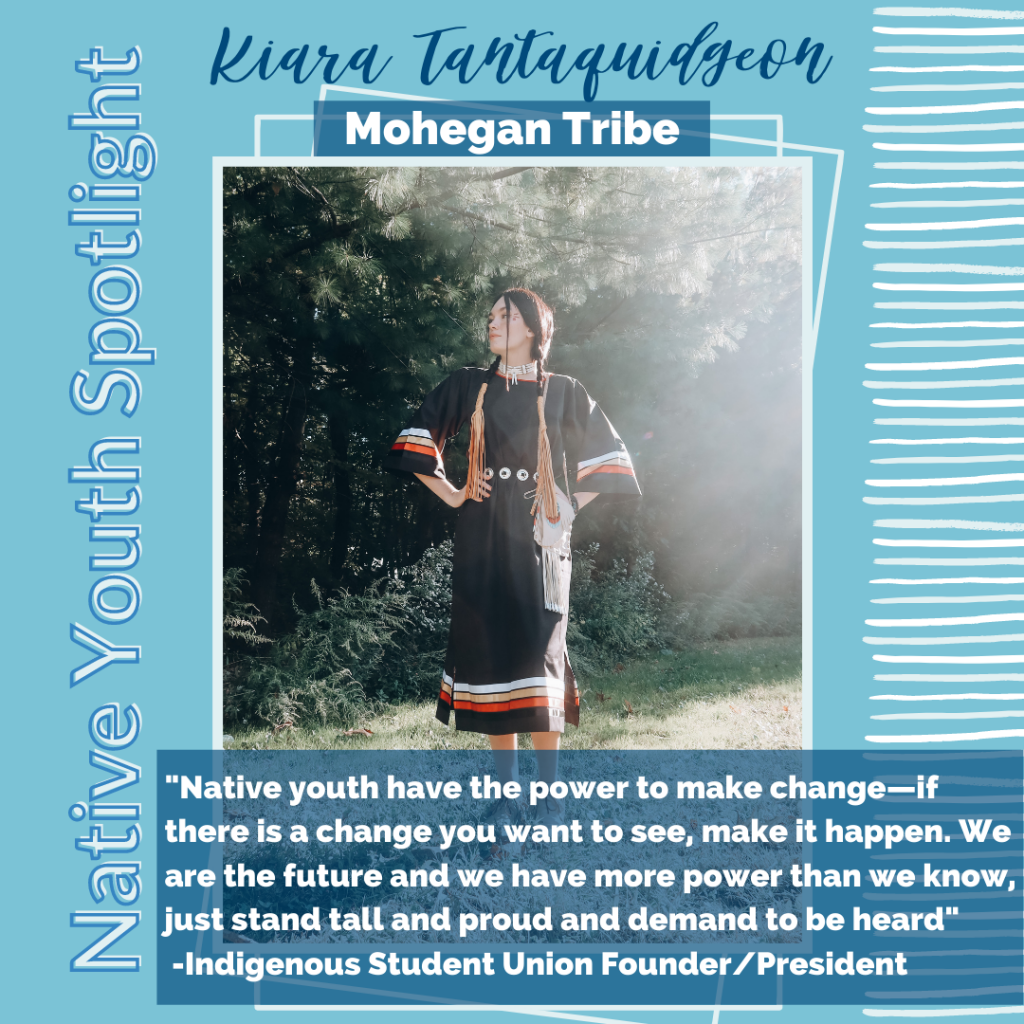
“Native youth have the power to make change-if there is a change you want to see, make it happen. We are the future.”
Written by: Kiara Tantaquidgeon, Mohegan Tribe
Coming to Quinnipiac, a predominantly white University, as a Native student was challenging. What was even more challenging and frustrating is that Quinnipiac University is a settler-colonist institution that uses a Native name and is on native land with little recognition, acknowledgement, or celebration of the Quinnipiac people.
As a freshman, I knew that spending the next four years at Quinnipiac was going to make staying in touch with my culture and identity difficult and was even ready to transfer to a university where I could be a part of an Indigenous community. However, after numerous conversations with uneducated students and even faculty, I did not want to leave Quinnipiac the way I came, and I knew I could make a change.
I got involved with the Indigeneity Initiative, a collaboration of different faculty, staff, students, and departments lead in part by the Albert Schweitzer Institute that are dedicated to making institutional change such as refocusing the narrative of the university to its roots of the Quinnipiac tribe, including Native student’s voices in the Quinnipiac community, creating a scholarship for future native students, and so forth.
Once I got involved with the initiative, I made the not so easy decision to create a community of Indigenous students at this predominantly white university. After two years of meeting with administration, drafting proposals and constitutions to establish a student organization, and experiencing a lack of support from many different directions, the Indigenous Student Union officially became a student organization at Quinnipiac University in September 2020.
The Indigenous Student Union functions as a community of students united in passion for the education, advocacy, and inclusion of Indigenous history, cultures, and peoples. Our purpose is primarily to create a sanctioned safe space and community for Indigenous students and join with allies to educate faculty, staff, and students about the history of the Quinnipiac people.
We have many goals including advocating for Indigenous peoples regarding social issues, uplifting and highlighting Indigenous students and native youth, and more. The Indigenous Student Union now works alongside the Indigeneity Initiative to make institutional change.
My advice to Native youth who may want to create a community at their own university is simply to take the risk. I know that it can be intimidating, and I can tell you that it will not be easy. A lot of people will not see or understand the importance of creating a Native community and involving students in the making of institutional change, but I can tell you that no matter how much backlash you receive or the lack of support you are given, it will be worth it in the end.
Creating the Indigenous Student Union was the best decision of my life thus far, and I do not regret the countless hours of writing, meetings, or tears spent on establishing the organization. Native youth have the power to make change—if there is a change you want to see, make it happen. We are the future and we have more power than we know, just stand tall and proud and demand to be heard.
With the Indigenous Student Union, Quinnipiac is no longer simply a predominantly white settler-colonist institution that uses a Native name, but a place where Indigenous students from all cultural backgrounds can feel welcome, appreciated, at home, and united, and you have the ability to make this change as well.
